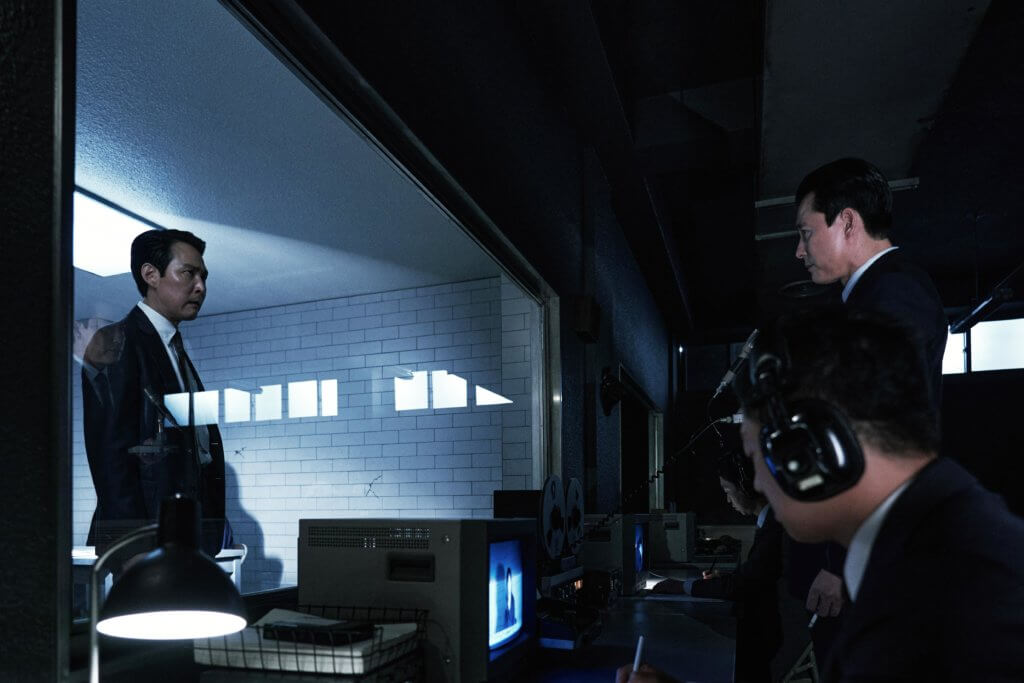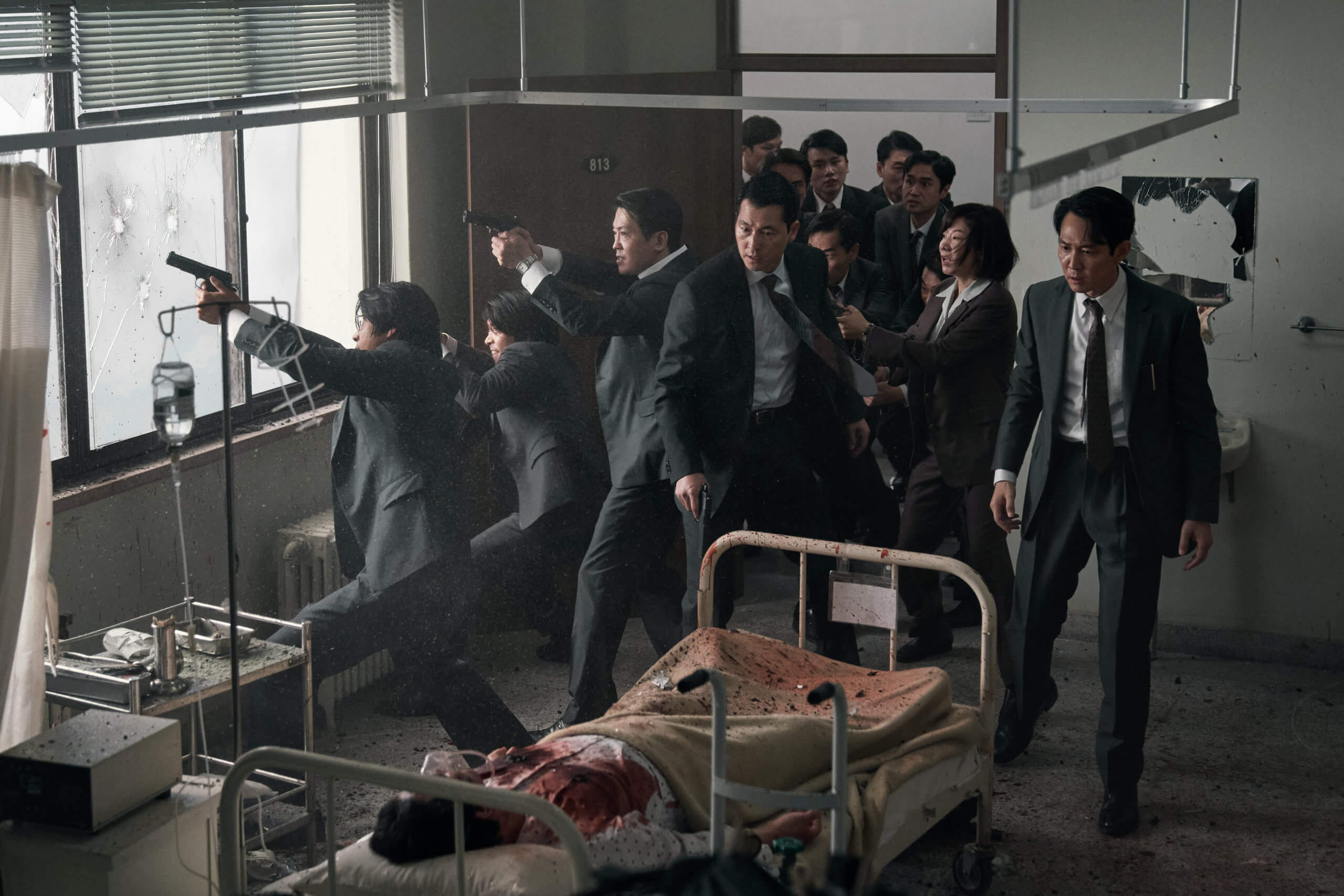The Midnight Screening section of Cannes has perhaps been a shelter amidst the vortex of arthouse prestige and glamour for more genre-oriented, “cult”-ish pictures. The latest selection, Hunt, helmed by famed actor Lee Jung-jae, who for the first time bears the tasks of directing, co-writing, and producing, is by all means a powerhouse of spectacle and primal fun befitting of its jaunty, possibly low-stake program. An explosion may be triggered for unknown reasons at any given moment as breezily as a crucial twist may get revealed and turn the tide of the story until the next one. But despite its initial facade of ease, the film increasingly seems as though it is so invested in its contrivances that it can’t even see when all the indications of reality are falling apart right under its nose.
The Korean Intelligence Service of the early 1980’s is facing an internal crisis, as its two departments, each led by Chief Park Pyong-ho (Lee Jung-jae) and Chief Kim Jung-do (Jung Woo-sung), undergo one another’s investigation as a report of a North Korean mole issues along with the threat of the president’s potential assassination. The two rivals, who apparently share a dark history, are determined to bring each other down and fulfill the promise of national order, whatever meaning that assumes in their cryptic minds. Perhaps the maelstrom of this setup is best delivered through the relationship between the characters; coursing through rivalry to disdain to mutual alliance to antagonism again, while all this development becomes chronically difficult to comprehend by the introduction of a ridiculous and spontaneous story beat after another. Both the leads are natural talents at carrying a film by sheer presence, but when everything around them seems so naively fabricated, it’s difficult for any hard work of a performance to grow beyond the feeling of cheap role-playing nor an expensive production to yield any proper meaning.

And the core issue of Hunt may be found in Lee’s persistent attempt to do the most he can, reach the utmost level of spectacle, while simultaneously carry some kernel of truth about the period of turmoil in history it wishes to inhabit. If there is a high-level intelligence asset in a given scene, there must also be an enemy sniper in the next building ready to trigger excitement or propel the drama, wherever it may lead. And it only makes sense if that assassin is met with the most dramatic of retaliations, while making the most dramatic of escapes. If a supporting character is motivated by an ounce of selfishness and poses a risk to the mission, they must let it be known by monologuing their bad intentions, to the point of caricature. And the way in which the film fails to suspend disbelief has to do with its lack of self-awareness and neglect of tone as an important foundation of the bigger picture, which might be a devastatingly typical mistake of any directorial debut, the only distinction here that Lee’s was privileged enough to be shown in the Grand Theatre Lumière for thousands of audiences. In the end, contrary to the film’s place in the global capital of cinema, it seems not even viable to discern the film’s ideology, nor if it even realizes the need for one.
